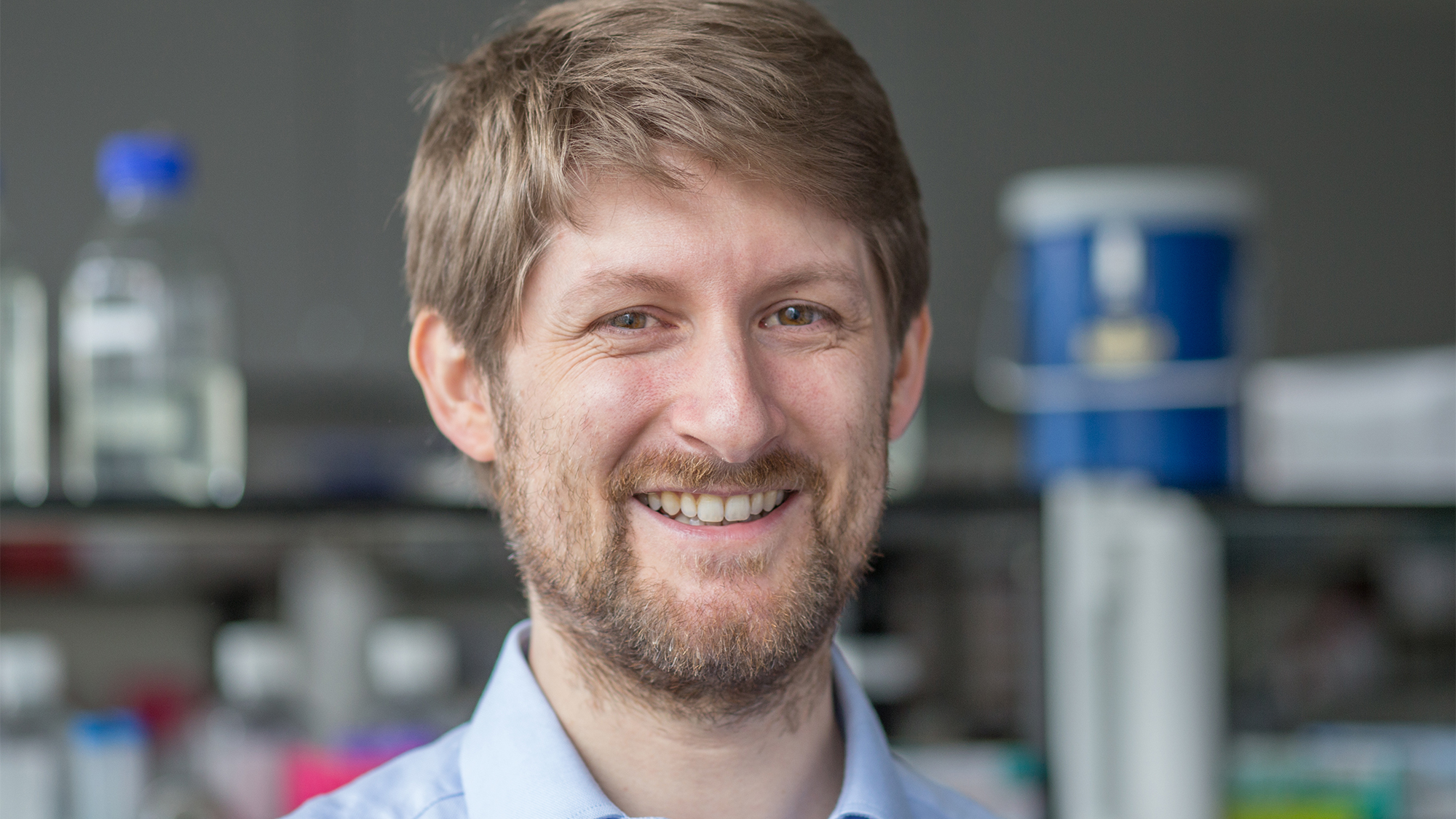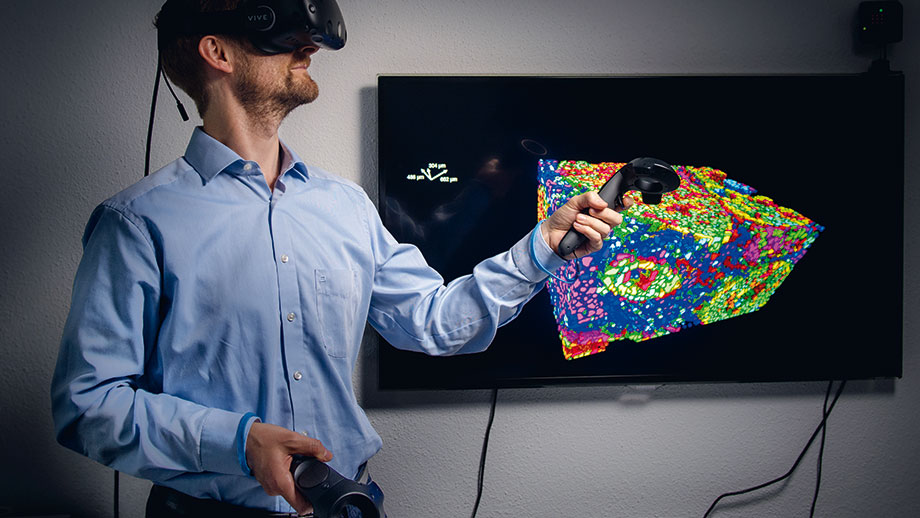Navigation auf uzh.ch
Navigation auf uzh.ch

Bernd Bodenmiller is a quantitative biologist at the University of Zurich. The 39-year-old researches how different cells in cancer tissue interact and uses imaging techniques and computer analyses to visualize these relationships. The jury chose Bodenmiller for his original thinking in his approach to a biological question that directly relates to most forms of cancer. The development of the techniques he is researching affects all research topics in the fields of the life sciences and health care.
The mass cytometry method that Bodenmiller and his team helped advance provides in-depth insights into the various stages of a tumor. It can be used to quantify cancerous growths right down to the level of individual cells and visualize these in high-resolution 3D animations. This helps precision medicine better understand the extremely dynamic processes of millions of tumor cells. “We can generate very detailed images of the tissue. These shows us which cells are located where, what they do, and how they interact and communicate,” explains Bodenmiller.
The more we know about the cells’ behavior in the various stages of cancer as well as the tumor’s composition, the more targeted we can fight the progression of the disease. The insights gained thanks to the basic research performed by Bernd Bodenmiller can thus help clinical specialists to develop therapies that are tailored to the patients’ needs.

Bernd Bodenmiller: “We can generate very detailed images of the tissue. These shows us which cells are located where, what they do, and how they interact.”(Picture: Marc Latzel)
Bernd Bodenmiller studied biochemistry at the University of Bayreuth and ETH Zurich. As a postdoctoral researcher at Stanford University, he developed methods for high-throughput analysis of signaling network states through mass cytometry. He has been SNSF assistant professor for quantitative biology at the University of Zurich’s Institute of Molecular Life Sciences since 2013. In the same year, he was awarded with a coveted ERC Starting Grant and in 2017, he received the UK’s Grand Challenge Award of Cancer Research as a member of an international research group. Bodenmiller has also been the founding director of the Department of Quantitative Biomedicine at UZH since the beginning of this year.